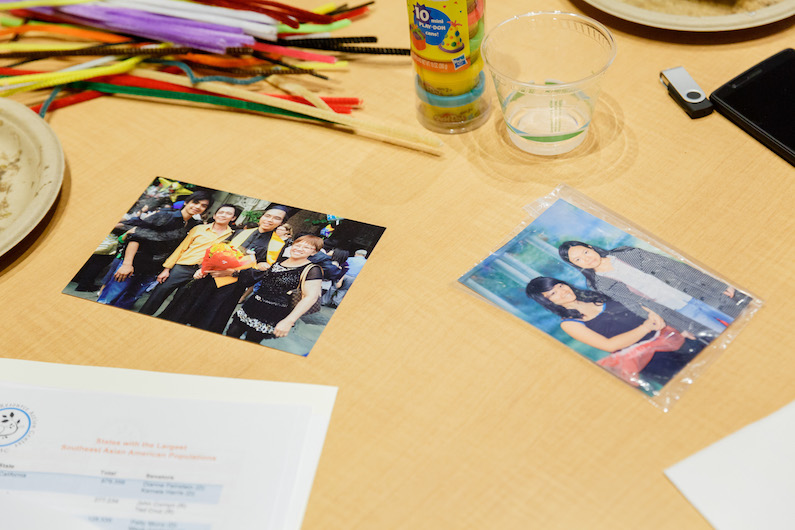Next week, the Diverse Elders Coalition will be participating in SEARAC’s annual Leadership and Advocacy Training (LAT) program in Washington, D.C. This post from SEARAC’s new Director of Communications and Development, Elaine Sanchez Wilson, shares how the LAT program relies on storytelling — a key component of the Diverse Elders Coalition’s work — to make change in the halls of Congress that will reverberate in our communities across the country.
One of my earliest childhood memories was a lazy summer afternoon spent curled up in bed, devouring a tiny collection of Amelia Bedelia books that I’d borrowed from the neighborhood library. I was a new reader and couldn’t get enough of it; I skipped dinner and instead consumed page after page.
That day, I was transported away from the small room I shared with my Lola in northern NJ and into the strange but delightful world of bizarre Amelia and her silly antics. I was hooked.
Looking back, Ms. Bedelia started my entire career trajectory—from a community news reporter who covered the inspiring stories of local change agents, to SEARAC’s new Director of Communications and Development, who aims to harness the power of our SEAA community’s stories to inform and guide SEARAC’s advocacy.
After all, stories have that kind of transformative effect on a person. They carry us to foreign lands and introduce us to new characters. They reveal our differences and showcase our commonalities. They move us to laugh, to cry, to hope, and sometimes even to action.

Photo-sharing activity from LAT 2017
This year, SEARAC asked members of the 19th cohort of our Leadership and Advocacy Training (LAT) program to bring a photograph that captures their personal story and speaks to their inspiration and motivation. Next week, we’ll welcome these 47 individuals, who represent 32 congressional districts from 14 states. During the three-day affair, our trainees will gain knowledge in three main policy areas (education, health, and immigration), learn advocacy strategies, and share their stories with one another. The training culminates on Capitol Hill, where participants will have the opportunity to practice their skills by connecting their personal narratives to policy priorities in meetings with members of Congress. In the process, they’ll also build a national network of fellow committed advocates and social change agents that they can turn to for support as they take the lessons learned and apply it to their own communities all across the country.
Many communities.
Many stories.
Many advocates.
One journey.
I’m honored to be a small part of their travels, and I’m excited to go along for the ride with SEARAC.
The opinions expressed in this article are those of the author and do not necessarily reflect those of the Diverse Elders Coalition.

